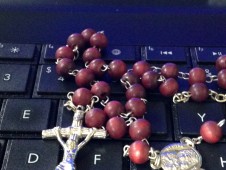What’s in a name? Well, for a writer a whole lot! Now that you have your character – what will you name him? or her? Picking out a name for a character is extremely important and there are certain tried and true rules that authors swear by.
Naming a character that fits their personality or role – In Steinbeck’s novella, Of Mice and Men, the reader is introduced to the character Lennie Small. His name has both literal meaning and irony. Lennie is an overly-large man with a large heart. However, his mental capabilities are small. He is mentally disabled. See how the name fits so well. The name becomes memorable. Yet it is not overpowering – hitting the reader over the head. Look at your character’s appearance and personality and take all of that into account. Is your character blonde – how about the name Blanche? Or is he handy around the house – how about Jack? Is he over-bright? Try Lucas. Think about the character Hans Solo from the movie Star Wars. A handy adventurer who is independent, a loner. His name fits perfectly. However, certain names like Adolf or Elvis are so indicative of famous or infamous people that they immediately create a wrong image in your reader’s mind. Best to avoid them.
Naming a character according to the original meaning of the name – Even if you don’t pick your character’s name according to the original meaning of the name, you should always look up the meaning of your character’s name. In my children’s series the characters are named almost exactly according to their personalities or faults. Hence – Mr. Lemon is the sourpuss who lives next store and Sister Wanda is the nun who always gets lost. But it is not just in children’s books that this can work. For instance, if you have a regal, legalistic female, her name can be Regina – meaning Queen. If you have a well-mannered, chivalrous male – the name Arthur (as in King Arthur) may suit him. See how it works.
Names that fit the nationality or country of the character. Always double-check the national source of your character’s name. Especially the last name. Authors have made insulting errors by giving a Chinese character a Japanese name by mistake. Your readers are savvy. They create images of your character just by the name. If you don’t think so, ask someone to describe the character you just named. Does it fit? Did you give your Indian national an English name? Did you spell your Irish character’s name in the Scottish fashion? Believe me, someone will notice.
Names that are cumbersome, odd, or hard to remember – I once had to write a review for a fantasy novel that I loved. I loved the alternate world the author created. I loved the plot, the setting, the characters, etc. However, he used names that were so odd and hard to pronounce that they caught me and stopped the action in its tracks. Not only were they hard to remember, many of the characters’ names began with the same letter or were so similar that I got confused about who was speaking or thinking. Don’t do this to your readers. Give the characters distinct names that all begin with different letters. Don’t over-complicate the name. My rule of thumb is a short first name to a difficult last name or a unique first name to a common last name. Yeah! like Indiana Jones or Dorothy Gale!
Naming a character after someone you know – This can be a lot of fun or turn into a nightmare. I like to name characters after people I know. In my first novel I named a minor female detective after a friend. The trick is to either ask your friend if it is alright or know your friend well enough to know that she would be thrilled. Another trick I use is to pick a character who is so unlike your friend that it will tickle their fancy. My friends delight in looking for themselves in my work. However, especially if you are creating an evil or villainous character, you should check with them. Writers have been sued for using a character who too closely resembled a live person. I once loved a name for a lost soul in my second novel, but it was the same first name as a close friend’s son. I asked her and she asked me not to use it. Naturally, I honored her decision. Have respect for your characters and start by having respect for your friends. That being said, like Hitchcock appeared in each of his films, my friends will continue to make appearances in my novels.
Use a name that fits the time period of your work – If you are writing a period piece (and we all are – even if we use the present) it is important that the names you give your characters fit. Names come and go into fashion with the times. The name Myrtle or Ethel wouldn’t fit a modern child – not anyone after the 1940’s. Someone in the seventies would more likely be named Jennifer, not Riley. How do you check this out. I knew a writer who frequented graveyards and gleaned the names she needed off gravestones, names that encompassed her book’s time period. No need for this, however! Just go to the Social Security Name Popularity List and check out the popular names for your time period.
Now have some fun. Picking names should be fun!
Karen Kelly Boyce lives on a farm in NJ with her retired husband Michael. She has two grown children and two grandchildren. She is an award-winning novelist and writes a children’s series for Chesterton Press.
